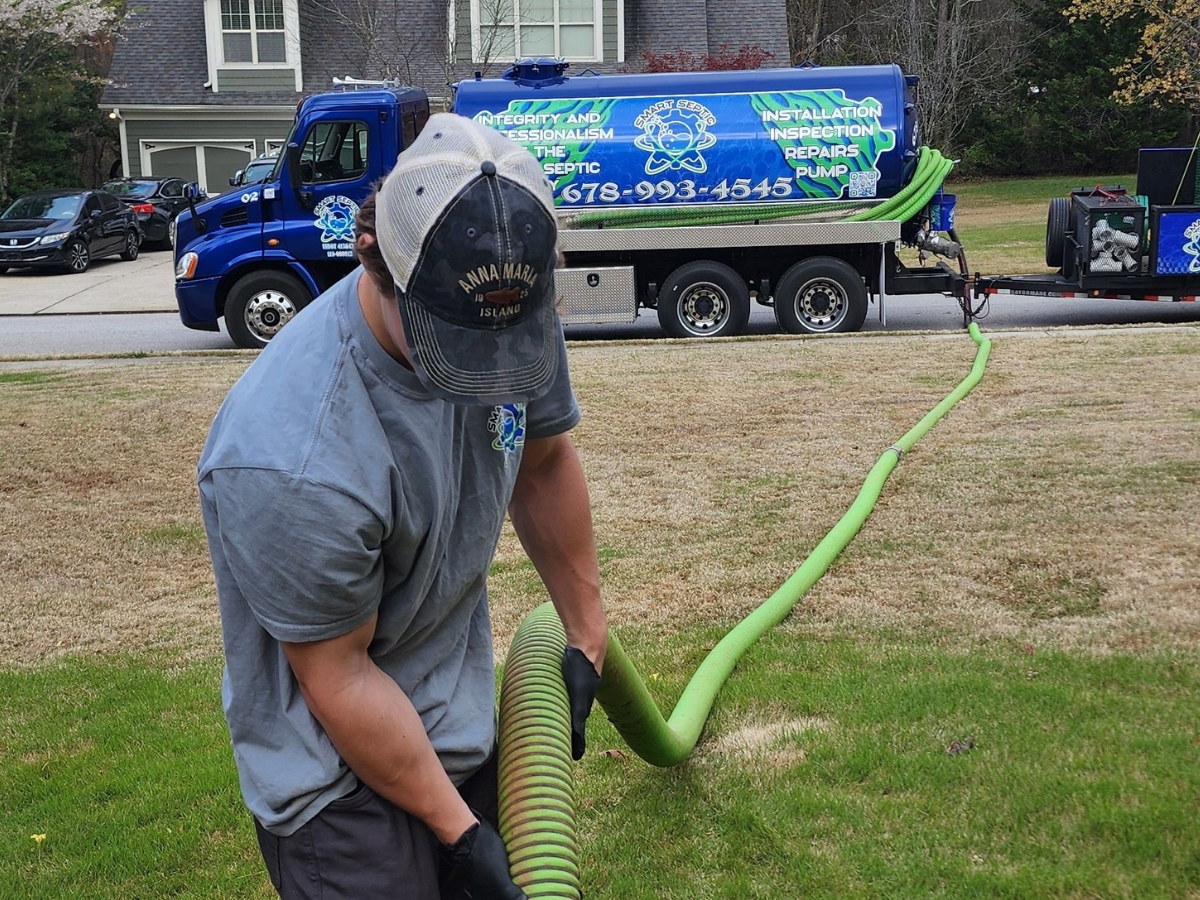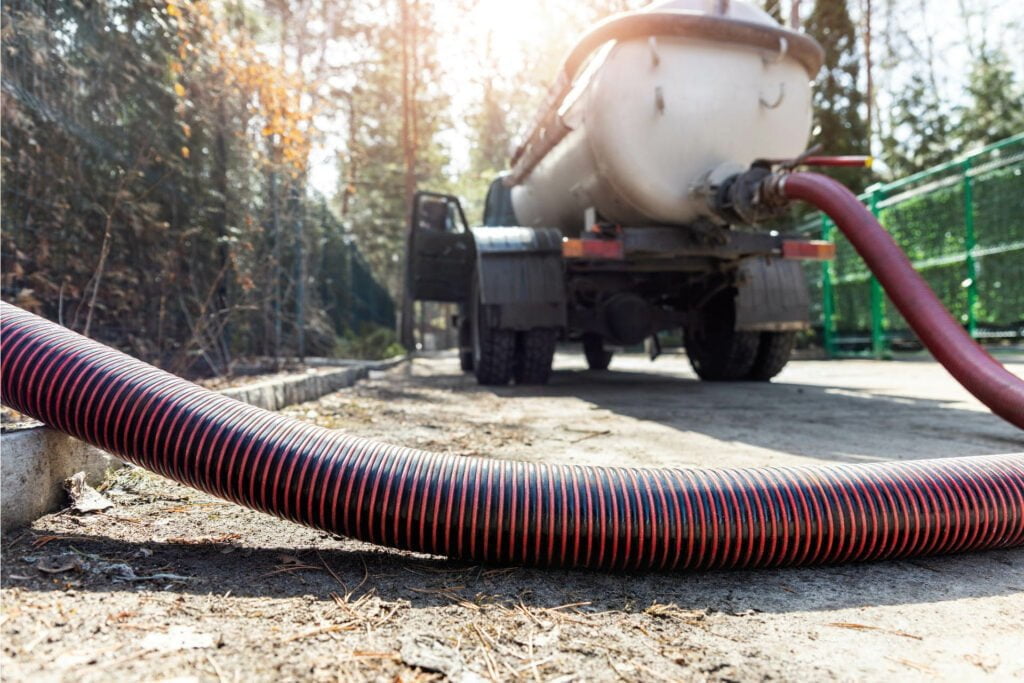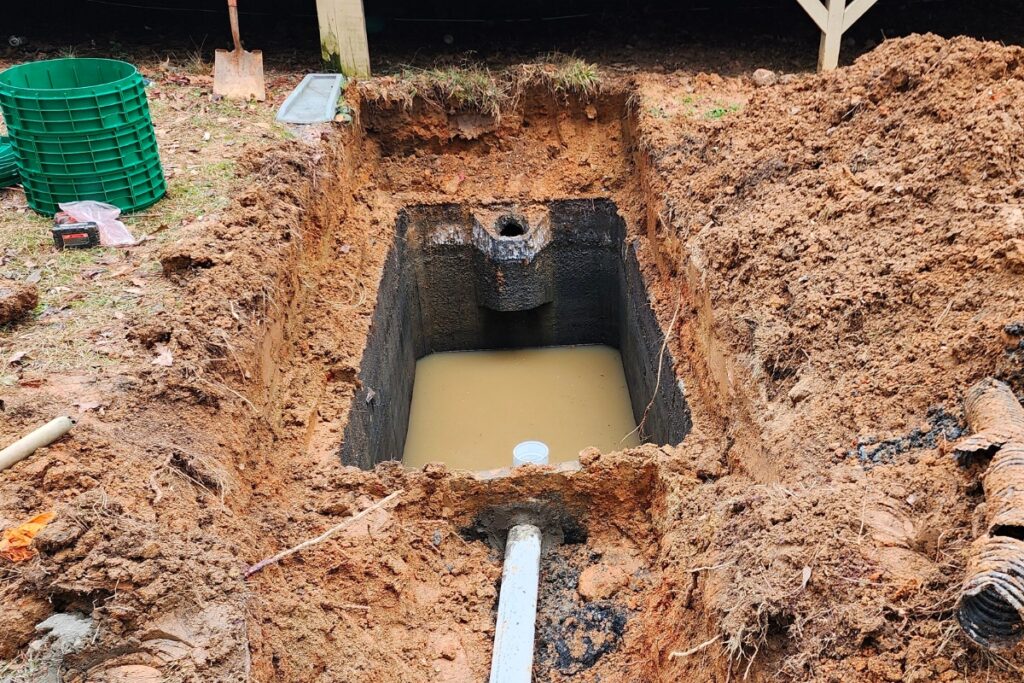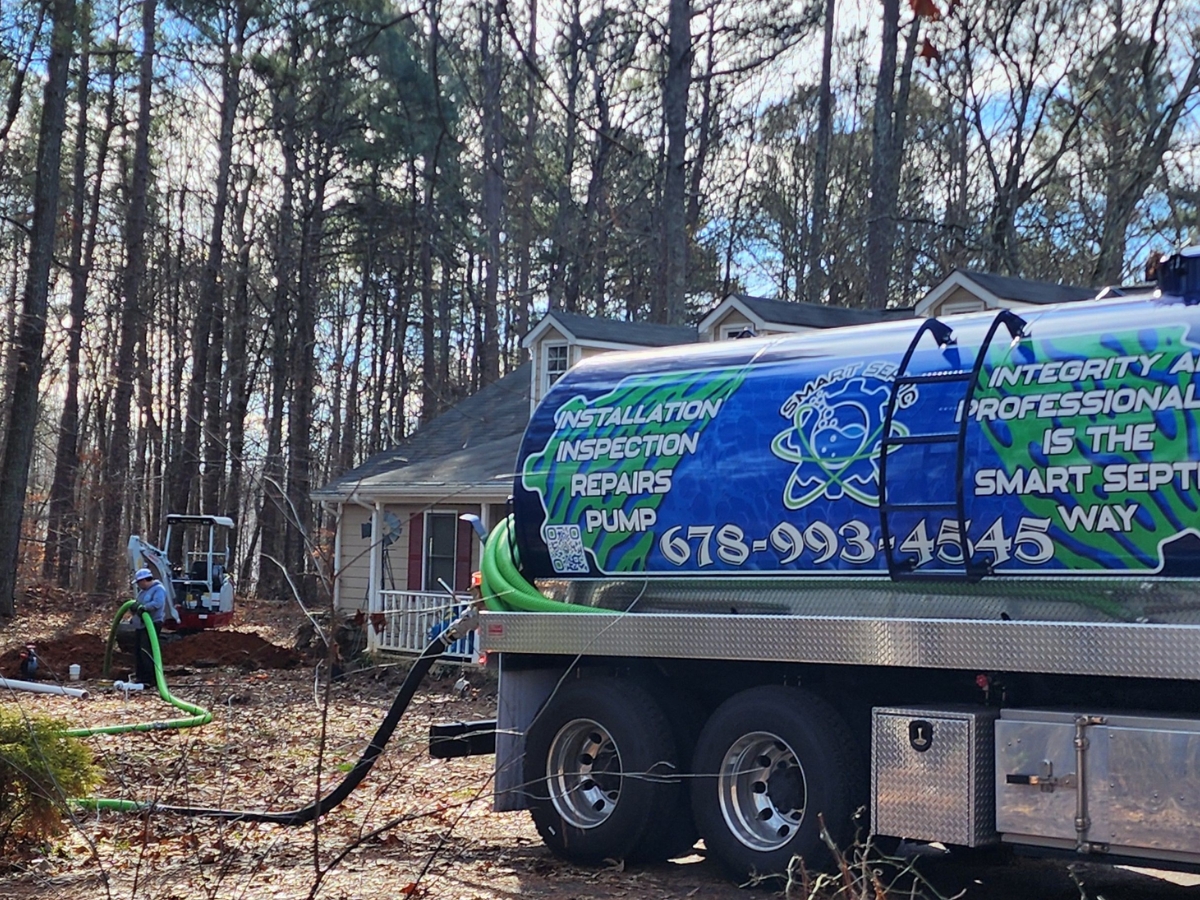Managing a septic system can feel overwhelming, but with the right approach, it’s possible to save money and extend its life. Regular septic tank maintenance and timely septic tank pumping can significantly lower costs over time, preventing major issues with septic drain fields.
Smart Septic Pros understands the importance of these practices and is ready to provide expert help. Planning ahead and implementing consistent maintenance is crucial for efficient septic system health. Keep reading to discover how to navigate costs and ensure your septic system operates smoothly for years to come.
Essential Insights and Key Takeaways on Septic System Services

How Regular Maintenance Reduces Septic System Costs
Proper septic system maintenance can prevent costly emergencies that catch homeowners off guard. Regular upkeep minimizes the chances of unexpected septic drain fields backups and those unpleasant odors that can signal trouble. By keeping the system functioning well, homeowners can extend its lifespan, which, in turn, lowers their overall septic tank pumping system maintenance costs. A well-maintained system requires less frequent pumping, saving time and money.
Failing to address minor issues can lead to significant property damage, which could turn into a major headache for anyone involved, even an estate agent trying to sell the house. Plus, early interventions can prevent the need for expensive repairs like septic drain field repair. It’s clear that investing in regular maintenance pays off down the line. contact Smart Septic Pros for more information.
Prevention of Emergency Repairs
Regular maintenance significantly reduces the likelihood of emergency repairs, particularly when it comes to issues like flooding in the yard due to tank overflows. When sludge builds up in the tank, it can block the drain field and lead to unpleasant odors and drainage problems. Ensuring proper oxygen flow within the system is key to breaking down waste, making it less likely for clogs and backups to occur.
Extension of System Lifespan
Regular maintenance of a septic system significantly contributes to its longevity. By scheduling routine septic tank service, homeowners ensure that any buildup of liquidwaste is effectively managed, preventing complications that can lead to premature failures. A well-maintained system not only helps avoid costly leach field repair but also safeguards drinking water quality, giving everyone peace of mind.
| Maintenance Activity | Benefits |
|---|---|
| Regular Pumping | Prevents sludge buildup and enhances system efficiency |
| Inspections | Identifies minor issues before they escalate |
| Cleaning | Maintains proper flow and reduces drainage problems |
| Repairs | Reduces the chance of major repairs, including leach field repair |
| Consistent Monitoring | Ensures optimal function and extends the system’s lifespan |
Improved Efficiency Reducing Need for Frequent Pumping
Regular maintenance leads to improved efficiency in septic systems, which significantly reduces the need for frequent pumping. When systems operate effectively, it lowers the risk of issues that could lead to costly commercial property repairs. A well-maintained septic system not only saves homeowners money but can also impact the home inspection process positively by enhancing property value and possibly lowering future mortgage considerations.
People often overlook the role of pressure washing in maintaining efficient septic systems. A clean and clear system allows for better waste management, ultimately saving owners money on pumping costs. This proactive approach can lead to lower overall expenses, reflecting positively in property valuations and during mortgage assessments.
Protection Against Costly Property Damage
Regular maintenance keeps an eye on the entire septic system to prevent property damage. By addressing issues like drainage problems early on, homeowners can avoid the need for costly septic repair or septic field repair later. Even something as simple as excessive toilet paper usage can affect system performance, so monitoring usage and adjusting frequency of maintenance can save a lot in potential repairs.
Regular maintenance not only keeps your system running smoothly but also saves you money in the long run. Now, let’s break down the costs associated with keeping your septic tank in top shape!

Understanding Septic Tank Maintenance Costs
Understanding the costs associated with septic tank maintenance is crucial for homeowners and real estate agents alike. Routine maintenance fees can vary, but knowing the average costs helps in planning the budget. Various factors influence these expenses, such as the type of system installed, local regulations, and the specific needs of the soil and groundwater conditions in the area. Doing a cost-benefit analysis shows that regular maintenance prevents unexpected costs down the line, particularly when neglect can lead to issues requiring extensive repairs.
Keeping bacteria levels balanced and ensuring that the septic system functions smoothly can eliminate potential problems related to property value, especially when it’s time to sell a home or property made of plastic piping. Taking these factors into account helps homeowners make informed decisions about their septic systems.
Average Costs for Routine Maintenance
When looking into average costs for routine maintenance, property managers and homeowners should consider a few key factors. Many companies offering “septic maintenance near me” provide pricing based on the type of septic system, such as anaerobic septic system maintenance.
By budgeting for regular inspections and pumping of the septic tank, property owners can save significantly in the long run, avoiding major expenses that come from neglecting their systems.
Factors Influencing Maintenance Expenses
Several factors influence the expenses associated with septic tank maintenance. Local regulations, recommended practices from the National Association of Realtors, and environmental research on sewage management all play significant roles in determining costs. Homeowners should also consider taxes related to property maintenance, which may affect their overall budget for upkeep.
Cost-Benefit Analysis of Regular Maintenance vs. Neglect
When weighing the costs of regular maintenance against the pitfalls of neglect, homeowners can see a clear picture. Paying a maintenance fee regularly not only manages the solidwaste and effluent properly, but it also prevents emergency situations that can lead to expensive fixes later on. Neglecting these responsibilities can turn a small issue into a major wastewater disaster, leading to far greater costs down the road.
| Maintenance Approach | Cost Implications |
|---|---|
| Regular Maintenance | Minimized costs and prevention of emergencies |
| Neglect | Higher costs due to emergency repairs and system failure |
| Routine Inspections | Identifies issues early, saving on repairs |
Knowing the costs of septic tank maintenance sets a solid foundation, but there’s more to the story. Let’s dive into the critical role that pumping plays in keeping your septic system in top shape!

The Role of Pumping in Septic System Health
Pumping plays a critical role in maintaining the health of a septic system and preventing costly problems down the line. Understanding the ideal pumping frequency helps homeowners avoid potential overflows and the pollution that can arise from neglect. Regular tank maintenance not only keeps the septic system running smoothly but can also significantly lower septic system repair costs.
It’s vital to know the signs that indicate a tank needs pumping, such as slow drains or unexpected odors, as ignoring these signals can lead to leaks and the need for expensive leach field repair near me. Keeping an eye on the health of the tank ensures long-term functionality and prevents financial headaches in the future.
Ideal Pumping Frequency to Avoid Overflows
To avoid overflows and maintain proper hygiene for a septic system, homeowners should follow a regular pumping schedule. Generally, pumping every three to five years works for most households, but certain factors like household size and pipe usage can influence this frequency.
For those seeking assistance, searching for “septic system maintenance near me” can provide plenty of options and often address common FAQ regarding ideal pumping intervals to ensure optimal performance.
How Pumping Frequency Affects Maintenance Costs
How often a septic tank is pumped can significantly impact maintenance costs over time. A regular contract for septic system maintenance ensures that waste is managed proactively, reducing the chances of larger issues arising later on.
By keeping up with the pumping schedule, homeowners can invest in recycling their waste efficiently, ultimately lowering unexpected septic maintenance costs.
Signs Your Septic Tank Needs Pumping
Homeowners should be alert to several telltale signs indicating that a septic tank might need pumping. Slow-moving drains, frequent backups, and strange odors near the tank or drain field can signal that the system is near capacity. Ignoring these indicators can lead to greater issues and increase septic repair costs down the line.
- Slow drains in sinks and tubs
- Unpleasant odors near the tank
- Frequent stoppages or backups
- Pooling water in the yard
Maintaining your septic system doesn’t have to break the bank! Let’s dive into some practical cost-saving tips that will keep your system running smoothly and your expenses manageable.

Cost-Saving Tips for Septic Tank Maintenance
Taking steps to cut costs on septic system maintenance doesn’t have to be complicated. Homeowners can start with some basic DIY maintenance techniques that are easy to implement and require minimal tools. Additionally, being mindful of water usage can significantly ease the load on the system. Simple changes in daily routines can help maintain better balance, ultimately prolonging the life of the system.
Choosing the right cleaning and treatment products is equally important, as some common household items can disrupt the delicate ecosystem within the septic tank. Implementing these smart strategies can lead to notable savings in the long run.
DIY Maintenance Basics
Homeowners can adopt some straightforward DIY maintenance practices to keep their septic systems functioning smoothly and reduce costs. Simple tasks like monitoring water usage and minimizing the disposal of non-biodegradable items can make a significant difference. Regularly inspecting the system for visible leaks or unusual smells also allows homeowners to catch potential problems early on:
- Limit the use of harsh chemicals in sinks and drains.
- Avoid flushing items like wipes or feminine hygiene products.
- Keep records of maintenance activities for future reference.
- Spread water usage throughout the week.
These basic steps can lead to long-term savings and a healthier septic system.
Smart Water Usage to Reduce Strain on Your Septic System
Smart water usage plays a critical role in keeping septic systems running smoothly. Property owners can reduce water flow during high-usage activities like laundry and dishwashing, spreading out chores throughout the week. This practice not only helps the system handle waste better but also cuts down on the load it has to manage.
To put these smart water practices into perspective, consider the following table showing the impact of water usage on septic system health:
| Water Usage Activity | Recommended Action |
|---|---|
| Showering | Limit shower time to encourage efficient water flow |
| Dishwashing | Run full loads instead of multiple smaller ones |
| Washing Clothes | Stagger laundry loads throughout the week |
| Toilet Flushing | Install low-flow toilets or consider other efficient fixtures |
Adopting these simple adjustments can lead to a healthier septic system and savings in maintenance costs over time.
Choosing the Right Products for Your Septic System
Choosing the right products for a septic system is vital for maintaining its health and efficiency. Homeowners should opt for biodegradable cleaners and soaps that break down easily in the tank, minimizing disruption to the natural bacteria populations needed for waste breakdown.
Additionally, selecting environmentally friendly treatments can help preserve the system’s balance, ultimately leading to fewer repairs and lower maintenance costs. Keeping your septic system in great shape saves money, but unexpected repairs can still sneak up on you. Get ready to tackle those repair costs and keep your system in top form!

Navigating the Cost of Septic Tank Repairs
Understanding the costs tied to septic tank repairs is crucial for homeowners and property managers alike. Common repairs can vary widely in price, often depending on the severity of the issue and the specific parts that need fixing. Through regular maintenance, homeowners can prevent many of these costly repairs before they arise.
Knowing when to call a professional for help ensures minor issues don’t escalate into major problems, saving both time and money. This section will provide insights into common repairs and their costs, the benefits of regular upkeep, and guidelines on when expert assistance is necessary.
Common Repairs and Their Associated Costs
Common septic tank repairs can quickly add up if not managed properly. For instance, fixing a leach field can cost anywhere from $3,000 to $10,000, depending on the extent of the damage and local regulations. Homeowners should stay on top of minor issues, as a simple replacement of a pump might range from $400 to $1,000, which is much cheaper than tackling a full system replacement down the line.
How Regular Maintenance Can Prevent Major Repairs
Regular maintenance plays a vital role in keeping a septic system in good shape and preventing major repairs from becoming necessary. By scheduling routine check-ups and addressing minor issues promptly, homeowners can avert larger, more costly problems that could arise from neglect. This proactive approach not only protects the system but also helps maintain property value over time:
| Type of Repair | Cost Without Maintenance | Cost With Regular Maintenance |
|---|---|---|
| Leach Field Repair | $3,000 – $10,000 | Minimized risk, often avoided |
| Pump Replacement | $400 – $1,000 | Potentially saved through monitoring |
| Drainage Issues | Variable, often costly | Less likely with inspections |
With these financial benefits in mind, homeowners can clearly see that regular residential septic maintenance is a smart investment that not only saves money but also extends the life of their septic systems.

When to Call a Professional for Septic Repairs
Homeowners should call a professional when they notice persistent issues like frequent backups, unusual odors, or slow drains that don’t resolve with minor adjustments. These signs often indicate deeper problems within the septic system that require expert attention. Ignoring these issues can lead to more extensive damage and higher repair costs, making it essential to act quickly and seek help from a septic service expert.
Understanding the costs is just the first step; the real journey lies in securing your septic system’s long-term health. Smart planning today can save you headaches and expenses down the road!
Planning for Long-Term Septic System Health
Creating a solid plan for long-term septic system health is key to keeping costs down. Setting up a maintenance schedule allows homeowners to have a clear guide for regular checks and necessary pumping, ensuring the system runs smoothly. Budgeting for future septic system expenses helps in avoiding unexpected financial strain, giving peace of mind.
Additionally, understanding the importance of professional inspections helps in spotting potential issues before they escalate, promoting longevity and functionality of the entire system. These foundational steps make all the difference in maintaining an efficient septic system while keeping expenses manageable.
Setting Up a Maintenance Schedule
To maintain an efficient septic system and prevent septic tank backup, homeowners should establish a clear maintenance schedule. This helps ensure the system receives regular checks and necessary servicing, which minimizes the chance of unexpected issues arising later on. By sticking to a timeline for inspections and pumpings, homeowners can take charge of their system’s health and potentially lower long-term costs.
- Determine the best frequency for inspections based on household size and system type.
- Incorporate reminders for routine pumping every three to five years.
- Schedule professional assessments to catch potential problems early.
Budgeting for Future Septic System Expenses
Planning for future septic system expenses is all about being proactive and setting aside some funds ahead of time. Homeowners can create a dedicated budget for maintenance, repairs, and emergencies to avoid financial strain later. This approach keeps everyone better prepared for unexpected situations that may arise, helping to ensure smooth operations throughout the years:
- Estimate the average yearly expense for routine inspections and maintenance.
- Set aside funds for potential repairs like pump replacements or minor repairs.
- Research local septic service providers to identify trustworthy professionals.
- Keep track of previous expenses to adjust the budget accordingly for the future.
By budgeting wisely, homeowners can effectively manage septic costs and maintain their septic system in good health for the long haul.
Importance of Professional Inspections for Longevity
Professional inspections play a critical role in maintaining the longevity of septic systems. These experts can identify potential problems that homeowners might overlook, ensuring that any minor issues are addressed before they escalate into major repairs. By investing in regular professional assessments, homeowners can safeguard the functionality of their septic systems and avoid unexpected expenses in the future.

Reduce Cost – Schedule Regular Maintenance Today!
Regular maintenance significantly lowers septic system expenses by preventing costly repairs and emergencies. Homeowners can extend the lifespan of their systems through routine inspections and timely pumping. Smart practices, like monitoring water usage and choosing the right products, further enhance efficiency and reduce strain. Overall, investing in consistent care leads to substantial savings and peace of mind for property owners.
Are you in need of septic maintenance services in Canton, Acworth, Marietta, or the metro Atlanta area? Look no further than Smart Septic Pros of Georgia. Our expert service will ensure the longevity of your septic system. Contact us to schedule your routine maintenance and start saving on your septic system costs.
By staying proactive with regular check-ups and maintenance, you can prevent costly repairs and extend the lifespan of your septic system. Don’t wait until issues arise; take control of your septic system’s health and finances by booking your maintenance appointment today.
asset management, productivity, maintenance, workflow, water, leak, roof, computerized maintenance management system, analytics, plumbing, asset, inspection, checklist, machine, downtime, tire, failure, pest, chimney, budget, data, manufacturing, wear and tear, air conditioning, vehicle, risk, facility management, inventory, predictive maintenance, wear, efficiency, engine, return on investment, investment, air filter, lubricant, emergency, motor oil, snow, smoke, refrigerant, maintenance management, air conditioning system, maintenance checklist, equipment, maintenance schedule, hvac maintenance, preventive maintenance schedule, cmms, planned maintenance, maintenance schedules, preventive maintenance, equipment maintenance, organization, fire extinguisher, safety, oil, clothes dryer, software, debris, carbon monoxide, ventilation, heat, fireplace, ice, shower, tool, predictive analytics, total productive maintenance, inventory control, fire, factory, automation, furnace, chimney sweep, vibration, home improvement, smoke detector, bathroom, basement, dust, truck, fuel efficiency, hazard, sink, sustainability, corrective maintenance, lint, longevity, drainage, transmission
